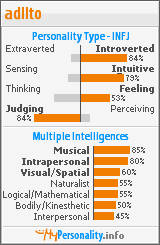 Death is stalking Zimbabwe’s children, as a potentially catastrophic famine gathers momentum. Aid agencies say that half the population, about five million people, face starvation, two-thirds of children are out of school and water shortages have led to deadly cholera outbreaks. Jan Raath Times online
Death is stalking Zimbabwe’s children, as a potentially catastrophic famine gathers momentum. Aid agencies say that half the population, about five million people, face starvation, two-thirds of children are out of school and water shortages have led to deadly cholera outbreaks. Jan Raath Times online
Over the last while I have posted once a month on Zimbabwe, July, August, September and now October. Why can't things get better instead of worse? Even with a supposed power sharing deal brokered by former South African Prime minister, Mbeki, there is no change and my earlier posting (here) doesn't show anything better only now the feared disaster in on the doorstep. The diseases which tell us of hunger, kwashiorkor, marasmus and pellagra, are now easy to see. The Times reports
When Zimbabwe’s Government does spend money on the health sector it does not help the people. Three months ago the Central Bank allocated $5 million (£3 million,) which was used to buy imported cars for the state’s 100 or so specialist doctors.The number of starving is 5 million, half the population. I can't even get my head around a number like that. Try and imagine 100 of something, your brain can't hold that, but perhaps more than the entire population of your city is starving, not just hungry. How can Mugabe even think about this? We're not just talking about the poor or the peasants anymore. The middle classes are starving and even teachers are joining their pupils in receiving a bowl of basic food porridge. Starvation also heaps coals on the heads of those with HIV/AIDS because the drugs require food and nutrition and a third of the population is infected.
I've been watching the first episode of The Century of the Self which tracks the influence of Freud and his family on Western values and consumerism and propaganda, public relations, and advertising. Freud's basic identification of hidden deep sexual and aggressive forces in the human psyche might be helpful if it hadn't been for his Americanized nephew, Edward Bernays, who promoted fundamentally the sexual material. Humans have deep aggressive tendencies which seems true but surely we should also take seriously the lust for power which even Machiavelli seems not to have fully acknowledged. Politicians seem incapable of truly caring about the people or the citizens rather more about remaining in power or gaining power.
If your enemy is hungry, give him food to eat; if he is thirsty, give him water to drink. Proverbs 25:21












